2021 New Faculty
HHD welcomes new faculty for the 2021 academic year
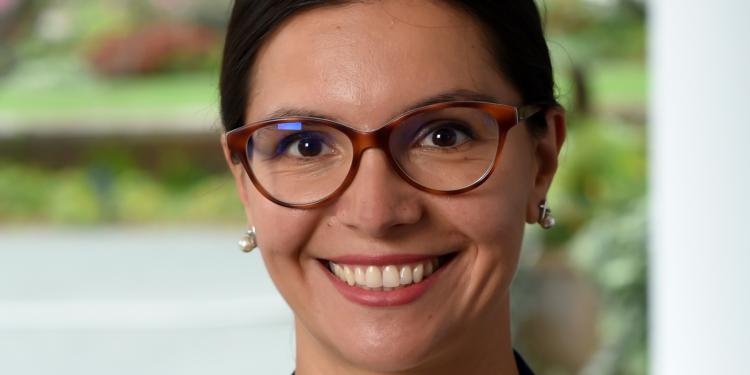
Mihaela Ciulei, Researcher
Nutritional Sciences
Mihaela Ciulei is a research epidemiologist in Alison Gernand’s lab. Ciulei obtained a dual-title doctoral degree in Nutritional Sciences and Clinical and Translational Science (NIH-sponsored) here at Penn State. Ciulei’s work focuses on planning and conducting individual participant data meta-analyses using records from pregnancy, and maternal trials of balanced energy and protein supplementation from low- and middle-income countries. She also enjoys teaching the complexities of the human nutrition metabolism, as well as the nutrition metabolic changes in the context of disease.
While at Penn State, she aspires to collaborate with investigators in the departments of Kinesiology and Human Development and Family Studies, the division of Health Services and Behavioral Research at the Penn State College of Medicine, and others who may similarly investigate intersections of nutrition and disease.
While she was a graduate student at Penn State, Ciulei started a women’s team handball club.
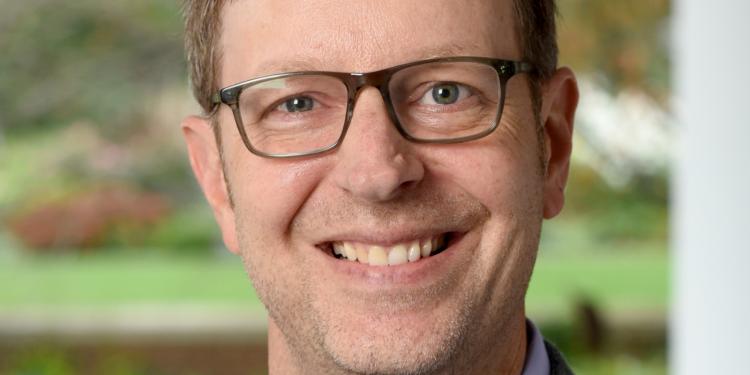
Eric Claus, Associate Professor
Biobehavioral Health
Eric Claus completed his doctoral degree at the University of Colorado at Boulder in psychology and neuroscience in 2008, and a postdoctoral fellowship in neuroimaging genetics of addiction at the Mind Research Network. Prior to coming to Penn State, Claus was an associate professor at the Mind Research Network in New Mexico.
Claus is a cognitive neuroscientist whose research focuses on understanding neurobiological mechanisms of alcohol and tobacco use disorders with the goal of translating these findings into more effective treatments. Specifically, he seeks to understand how executive functioning, stress, and craving contribute to the development and maintenance of addictive disorders and to identify those mechanisms that may be amenable to change. His work has primarily used functional magnetic resonance imaging, but he has also used other approaches, including transcranial direct current stimulation, electroencephalography (EEG), magnetoencephalography (MEG), and acute drug administration to probe these mechanisms.
Claus is interested in working with collaborators who have an interest in using neuroimaging to understand neural mechanisms that may lead to increased risk for substance use disorders. Additionally, given his interests in behavior change, he would like to find a collaborator who works with individuals seeking treatment for substance use disorders.
Outside of work, Claus is a "pretty decent" tennis player.
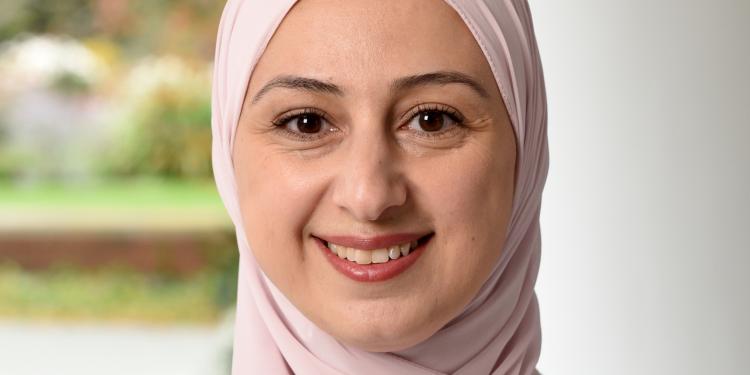
Manal Elfakhani, Assistant Teaching Professor
Nutritional Sciences
Manal Elfakhani earned a doctoral degree in Nutrition from Texas Woman’s University in May 2013 with a minor in Molecular Biology. Her doctoral research investigated the inhibitory impact of geranylgeraniol and lovastatin on the differentiation of murine 3T3-F442A preadipocytes and she examined underlying mechanisms impacting the adipogenic process. She also worked on several other projects involving the investigation of the chemo preventive role of geranylgeraniol, tocotrienol, and other mevalonate suppressors in cancers of the prostate, pancreas, and skin. From 2013 to 2017, she completed two post-doctoral research fellow positions, one at the University of Calgary and another at Georgia State University, focusing on prostate cancer and obesity research. In 2019, she completed a dietetic internship through Iowa State University. She is a registered dietitian and a licensed dietitian nutritionist in Pennsylvania and Georgia. Prior to joining Penn State University, she taught at Georgia State University and worked as a clinical dietitian in acute, critical, and long-term care. Elfakhani’s teaching interests range from the core nutrition courses, such as Introductory Principles of Nutrition and Nutrition Education and Behavior Change Theory to more specialized courses, such as Food and Culture and Functional Foods.
Elfakhani is married and has three girls, aged 14, 10, and 7. Her husband, Wael Jabr, is a faculty member at Smeal College of Business. She enjoys culinary experiments, hiking, cycling, and volunteering in the community. She especially enjoys traveling and exploring new cities, and has visited over 25 countries. She has lived in different parts of the world, including the United States (Georgia, Indiana, Pennsylvania, and Texas), Canada (Alberta and Saskatchewan), Saudi Arabia, and Lebanon, and enjoyed the exposure to diverse cultures and tradition.
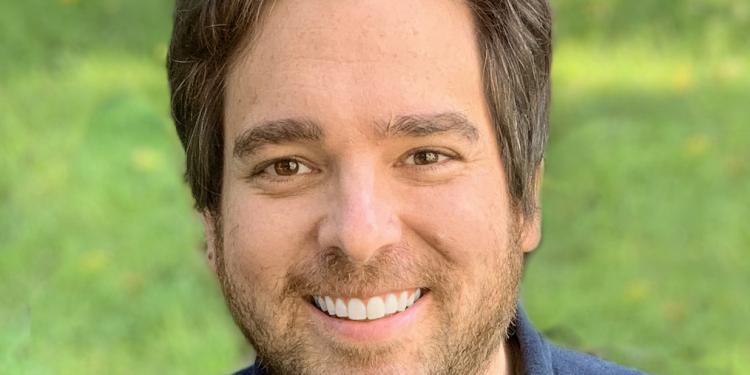
Zachary Fisher, Assistant Professor
Human Development and Family Studies
Zachary Fisher is an assistant professor of Human Development and Family Studies and a core member of the Quantitative Developmental Systems Methodology Core (QuantDev). He earned a doctoral degree in Quantitative Psychology from the University of North Carolina at Chapel Hill with a minor in Computer Science and an master's degree in Applied Statistics from Columbia University. Prior to joining HDFS as a faculty member, he was a T32 postdoctoral fellow at the Carolina Population Center.
A large portion of Fisher’s current work is focused on exploiting intensively collected time-series data to help researchers better understand and intervene on complex time-dependent processes. His interests in the study of dynamic processes include (1) the joint modeling of behavioral and biological processes, (2) the synthesis of multi-way data (cross-sectional and time-series), (3) time-varying treatment effects and other nonlinear systems and (4) machine learning and statistical programming. In addition, Fisher works on extending traditional modeling approaches, such as structural equation modeling, meta-analysis, and cluster analysis to allow for more robust and reliable inference.
At Penn State, Fisher is looking for collaborators interested in bridging population and individual-level health perspectives with the goal of better understanding the complex determinants of mental health outcomes at different time-scales (moment-to-moment, prolonged exposure and life-course).
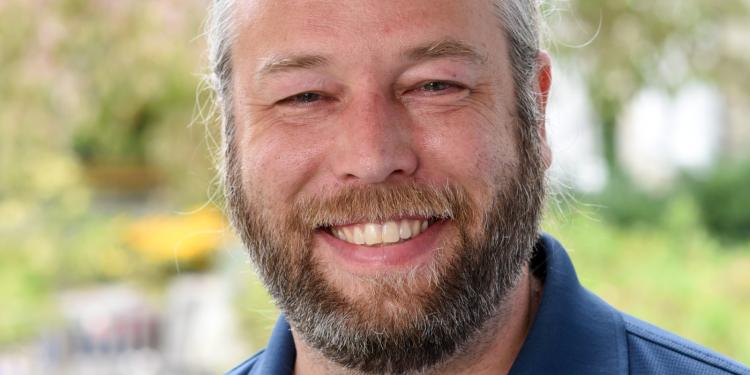
William Horton, Assistant Teaching Professor
Biobehavioral Health
William J. Horton is a new assistant teaching professor in the Department of Biobehavioral Health at Penn State University. He received a dual title doctoral degree from the University of Colorado – Boulder in Integrative Physiology and Neuroscience. His primary research interest is in circadian biology and how alterations in the circadian system interact with the pharmacology of abused drugs. This allows him to examine the interplay between molecular and genetic alterations to behaviors. He has worked in several model organisms including: fruit flies, mice, chickens, and song birds. Horton has taught both at Penn State, as well as most recently holding a visiting assistant professor position at Bucknell University, where he helped to champion new pedagogy methods, such as contract and labor-based grading systems.
Having lived in central Pennsylvania for eight years, Horton has come to appreciate the access to good, local produce. As a self-proclaimed foodie, he enjoys having a garden and and being near to so many local farms.
Emily Laubscher, Researcher
Communication and Sciences Disorders
Emily Laubscher will be working as the Augmentative and Alternative Communication (AAC) Research and Outreach Coordinator for the Rehabilitation Engineering Research Center (RERC) on AAC. Before coming to Penn State, Emily obtained a bachelor of science in Psychology from Colby College and a master of science in Speech Language Pathology from the MGH Institute of Health Professions in Charlestown, Massachusetts. She worked for eight years as a speech language pathologist.
Emily is a student in the doctoral program in CSD where her research interests center around improving communication outcomes for beginning communicators who require AAC, with a particular interest in supporting individuals on the autism spectrum and their families.
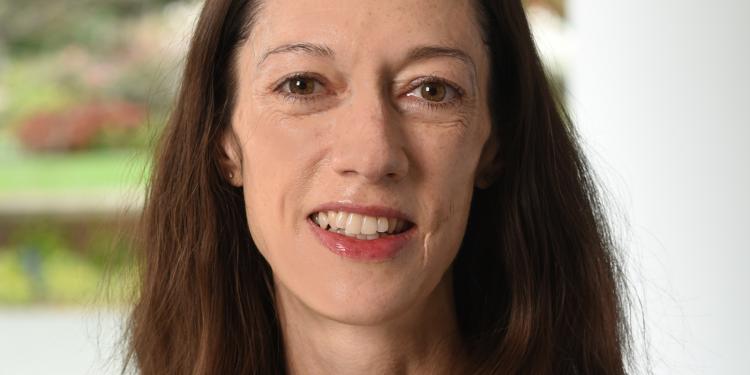
Heidemarie Laurent, Associate Professor
Human Development and Family Studies
Heidemarie Laurent is an associate professor of Human Development and Family Studies and Edna Bennett Pierce Professor of Compassion and Caring. She earned her doctoral degree in Clinical Psychology at the University of Massachusetts Amherst and completed a postdoctoral fellowship in Developmental Clinical Neuroscience at the University of Oregon.
Her interdisciplinary work, combining stress physiology monitoring, neuroimaging, and/or behavioral observation, aims to discern what allows some people to thrive in the face of stress while others succumb to mental or physical disorder, and to help people learn to respond with greater resilience to stressors in their lives and relationships. Her current work focuses on (1) what constitutes stress “regulation” by relating multiple biological (i.e., neural, neuroendocrine, autonomic) and behavioral stress response facets to psychological symptoms and well-being; (2) developmental paths shaping stress regulation, including prenatal and postnatal influences of parental stress and mental health; and (3) how practices such as mindfulness and compassion can improve stress regulation, and whom such practices are most likely to benefit.
Laurent would be interested in connected with researchers who deal with the human gut microbiome, as this is a growing interest in her work, and in stress research generally.
Laurent has five-year-old twins who serve as her most important mindfulness teachers!

Elizabeth Long, Assistant Research Professor
Prevention Research Center
Elizabeth Long is an Assistant Research Professor and Director of Research and Evaluation with the Research-to-Policy Collaboration (RPC). In this role, she examines strategies for bridging research and policy, including leading the quantitative evaluation of the RPC’s impact and rapid-cycle experiments for improving the reach of research among policymakers. Given her background in examining the etiology of substance misuse, she is particularly interested in bridging substance use research and policy. She has substantial experience surveying legislative staff and has published on best practices for doing so. Long is also involved in examining the use of research in legislation through deductive coding of legislative bills.
Outside of work, she enjoys spending time with her husband and dog, Jelly Bean, hiking, and exploring new restaurants.

Maegan Mapes, Assistant Teaching Professor
Communication Sciences and Disorders
Maegan Mapes completed her Doctorate of Audiology (Au.D.) degree at Salus University in Elkins Park, Pennsylvania. Mapes has worked in a variety of clinical settings, including ENT offices, private audiology practices, educational facilities and schools, assisted living and nursing homes, and hospitals. She spent the last two and half years working for Oticon, an international hearing aid company, as an education and training specialist providing support and continuing education to audiologists and hearing aid specialists around the country. Mapes has been an adjunct faculty member at Stockton University for the past seven years. She has experience teaching both undergraduate and graduate-level students, and was also a part of a team that worked with ASHA during the University’s master’s degree program accreditation. She plans to focus her clinical work and research at Penn State on pediatric hearing loss and central auditory processing disorders (CAPD), and hopes to help expand the number of audiology courses offered.
Mapes is interested in auditory processing evaluation and treatment in patients with TBI and sports related concussions. She would like to collaborate with investigators in the Department of Kinesiology and others to further evaluate the athlete's auditory strengths and weakness so accommodations can be put in place to help rehabilitate their auditory processing weaknesses.
Mapes is happy to be returning home, having grown up 45 minutes away from State College. She moved to the Philadelphia area in 1996.
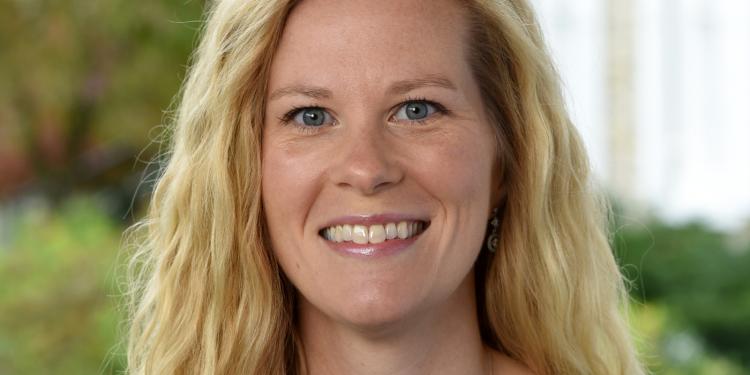
Megan Owens, Assistant Dean
Center for Student Advising and Engagement
Megan Owens joined Undergraduate Education as assistant dean for student services and engagement in May. Before her appointment, Owens served as assistant vice president for student services at Lincoln Memorial University in Harrogate, Tennessee. In addition to her work in student affairs, Owens has taught a variety of undergraduate and graduate-level courses in human services, psychology, and educational leadership. She received her doctorate in education from East Tennessee State University (ETSU) in 2016 and a master of arts in counseling in 2012, also from ETSU.
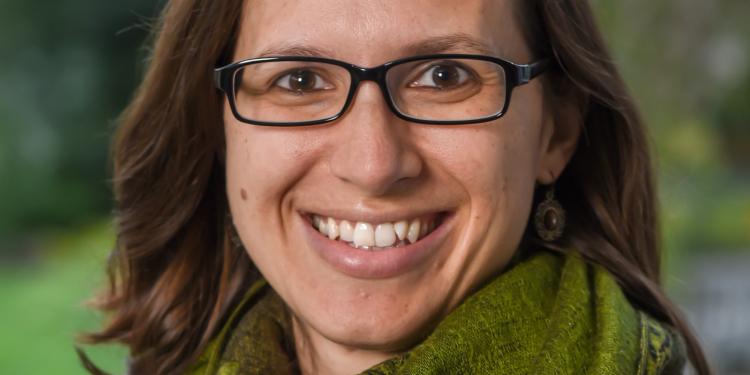
Danielle Rhubart, Assistant Professor
Biobehavioral Health
Danielle Rhubart is an assistant professor of Biobehavioral Health and a research associate of the Population Research Institute. She earned her dual doctoral degree in Rural Sociology and Demography from Penn State in 2016. Prior to joining Penn State as a faculty member, she was a full-time lecturer at the University of Dayton and postdoctoral fellow at the Lerner Center for Public Health Promotion at Syracuse University.
Rhubart studies geographic differences in health, with special attention to rural people and places. Much of her work focuses on the social, structural, and environmental determinants of rural-urban and within-rural health disparities. She has substantial undergraduate teaching and advising experience and has specialized training in interdisciplinary course development. She is an alumna of AmeriCorps VISTA and the Rural-Urban Leadership Program at Penn State, and has extensive experience in community-engaged learning.
Rhubart is looking forward to leveraging the existing interdisciplinary expertise in HHD to establish new research partnerships. In addition, she anticipates being part of working groups hosted by PRI and continuing to be involved with the Interdisciplinary Network on Rural Population Health and Aging.
On weekends, she enjoys spending time at Shaver's Creek with her family.
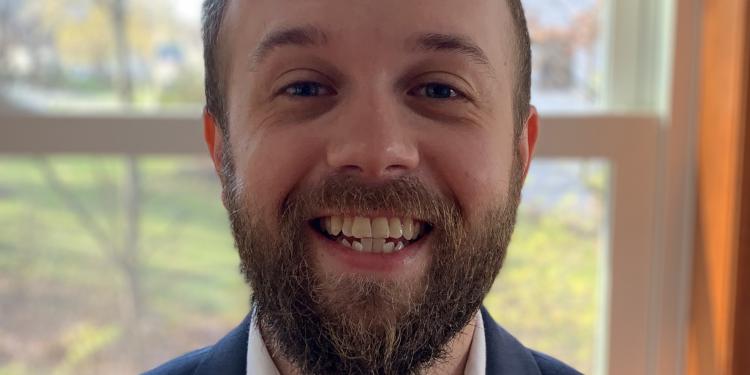
Derek Spangler, Assistant Professor
Biobehavioral Health
Derek Spangler received his doctoral degree in Neuroscience and Biological Psychology from Virginia Tech and completed a postdoc in the Department of Psychology at Ohio State University, followed by a postdoc in Human Engineering at the United States Army Research Laboratory (ARL). Prior to arriving at Penn State, he was working in a civilian scientist position at the ARL.
Spangler’s research program transects multiple disciplines (e.g., psychology, neuroscience, computer science, human systems engineering), aiming to use wearable technologies to both characterize and shape naturalistic stress by targeting its psychophysiological bases. His ultimate goal is to understand what makes our bodies and behavior respond differently to stress when in the real world versus the lab. Spangler’s research has three specific foci: improving wearable sensor measurement using rigorous physiological experimentation; assessing naturalistic stress in everyday life, virtual reality, and social interaction contexts; and testing real-time interventions that alter physiology and stress.
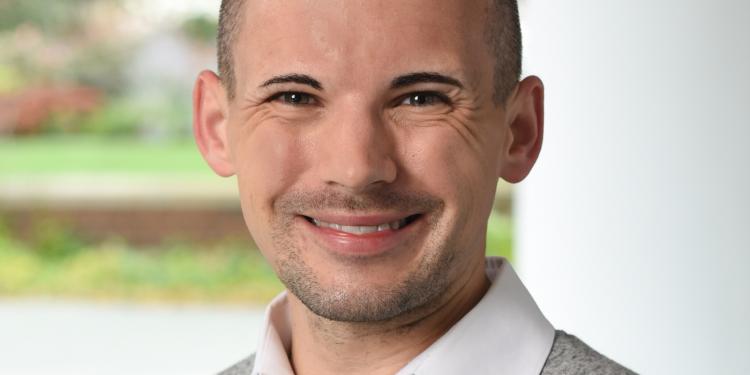
Kristopher Struckmeyer, Assistant Teaching Professor
Human Development and Family Studies
Kristopher Struckmeyer is a new assistant teaching professor in the Department of Human Development and Family Studies. He received a doctoral degree from Oklahoma State University in Human Development and Family Sciences with a specialization in Gerontology.
Initially, his scholarly focus was on caregiving families, drawing from personal experiences with his own family. Having served as a state specialist with Oklahoma Extension, Struckmeyer provided educational trainings to extension educators and the general public, cultivated partnerships to disseminate programs and information, and developed resources for public use. Within the last two years, his focus has extended to other marginalized aging families, specifically rural LGBTQ+ families. Struckmeyer’s research interests include understanding and improving the interaction between older adults and their environment (e.g., health services, social support, educational trainings, etc.), community readiness to respond to legislation and pressing community health issues, and the multitude of issues facing rural LGBTQ+ older adults.
Struckmeyer is open to collaborations that focus on the health and well-being of rural adults, as well as examining interactions between aging families and the community.
Struckmeyer is a fantasy novel addict! He cannot get enough of stories in Middle Earth-like settings.

Jocelyn Vanderbrink, Assistant Teaching Professor
Health Policy and Administration
Jocelyn Vanderbrink recently joined the Health Policy and Administration faculty as an assistant teaching professor. She has held various roles in the HPA Department and has extensive residential and online teaching experience and has authored two courses currently offered via World Campus. She conducts research in the Center for Health Care and Policy Research at Penn State focusing on qualitative data collection and analysis. Her current research is exploring how different healthcare stakeholders define quality.
Prior to academia, she worked in both acute and rehabilitation hospitals where she was responsible for marketing, strategic planning, new business development, patient case management, and as a consultant she assisted health systems in developing their facility management plans and analyzed how business strategies might impact those plans.
Vanderbrink looks forward to working with and learning from others on best practices for online education and student engagement. Her favorite vacation is a low-key trip to the Outer Banks filled with lots of family, jumping waves, reading by the surf, and hunting for fossilized shark teeth.
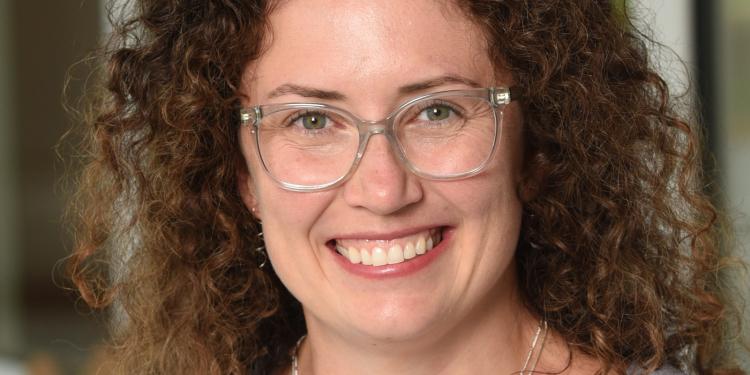
Jessica Williams, Associate Professor
Health Policy and Administration
Jessica A. Williams is an associate professor of Health Policy and Administration. She earned her doctoral degree at UCLA Fielding School of Public Health. Prior to joining Penn State, she was an associate professor at the University of Kansas School of Medicine and a Robert Wood Johnson Foundation Health and Society Scholar at the Harvard Center for Population and Development Studies.
Her research advances health equity by understanding how workplaces and community services affect health. Here research has two primary lines of inquiry (1) assessing how organizational policies impact workers’ health and injury rates; (2) how different levels of prevention can ameliorate or exacerbate health disparities. Her most recent work revolves around nursing home workers.
When she isn’t researching or exploring with her family, she loves to bake.
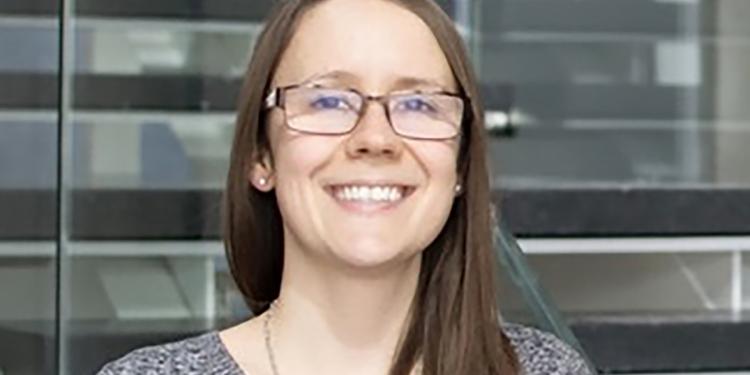
Tara Zimmerman, Researcher
Communications Sciences and Disorders
Tara (O’Neill) Zimmerman completed her Doctor of Philosophy in the Department of Communication Sciences and Disorders at Penn State University and is a licensed and certified speech-language pathologist. She was previously an assistant professor in the Speech-Language Pathology Department at Misericordia University. Zimmerman is currently the Augmentative and Alternative Communication (AAC) research and clinical outreach coordinator. Her primary areas of specialization include AAC and child language development and disorders. Currently, her research focuses on improving the design of AAC supports and technologies (e.g., communication boards, speech generating devices, mobile technologies with AAC apps) for individuals with complex communication needs and their families.
In her free time, Zimmerman enjoys disc golfing with her husband.
